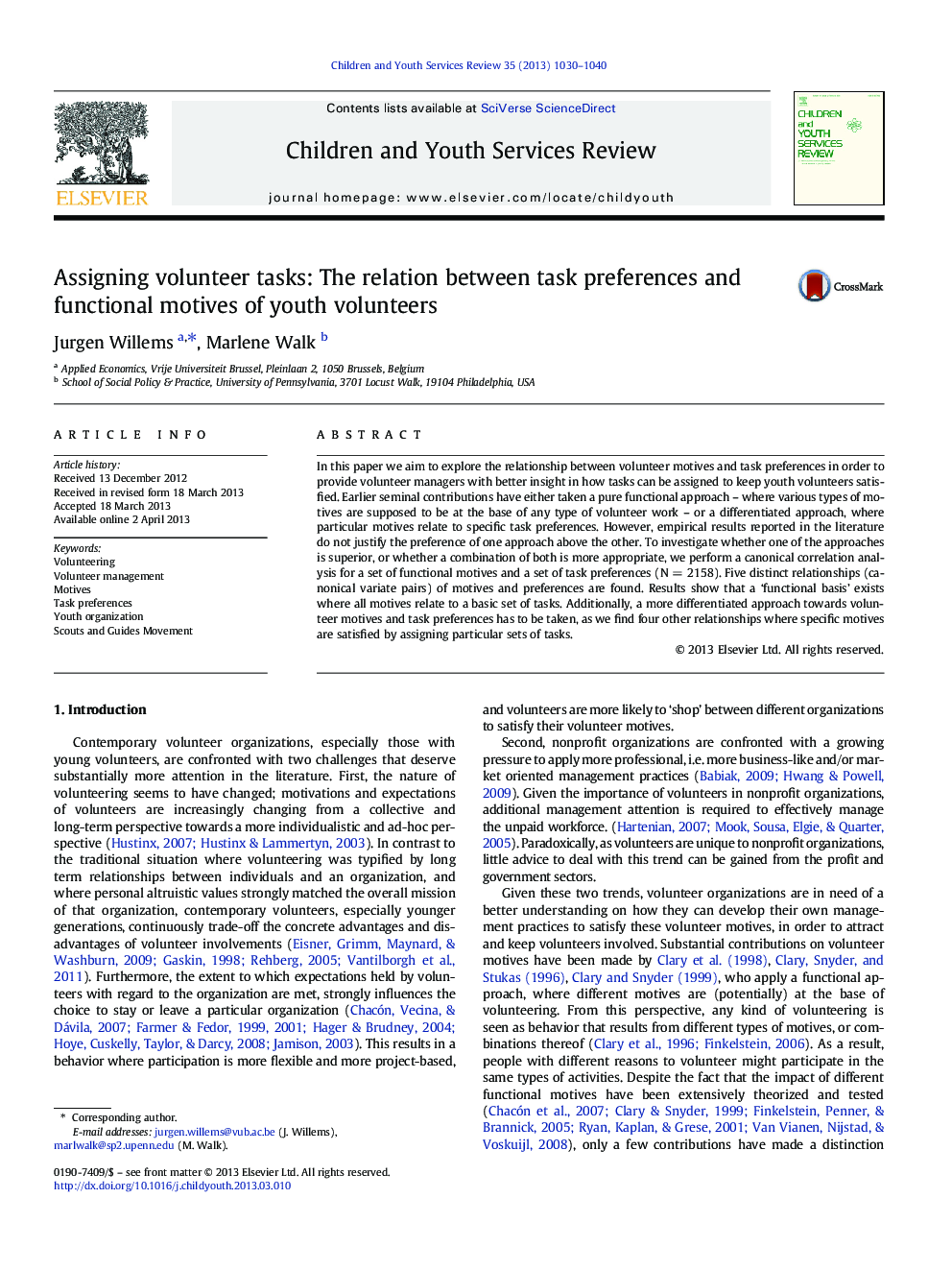| Article ID | Journal | Published Year | Pages | File Type |
|---|---|---|---|---|
| 346385 | Children and Youth Services Review | 2013 | 11 Pages |
•We study the relatedness between motives and task preferences of youth volunteers.•We test the relevance of a functional and a differentiated management approach.•Canonical correlation analysis shows five combinations of motives and task preferences.•The first correlation justifies a basic functional approach.•The four other correlations justify additional differentiation.
In this paper we aim to explore the relationship between volunteer motives and task preferences in order to provide volunteer managers with better insight in how tasks can be assigned to keep youth volunteers satisfied. Earlier seminal contributions have either taken a pure functional approach – where various types of motives are supposed to be at the base of any type of volunteer work – or a differentiated approach, where particular motives relate to specific task preferences. However, empirical results reported in the literature do not justify the preference of one approach above the other. To investigate whether one of the approaches is superior, or whether a combination of both is more appropriate, we perform a canonical correlation analysis for a set of functional motives and a set of task preferences (N = 2158). Five distinct relationships (canonical variate pairs) of motives and preferences are found. Results show that a ‘functional basis’ exists where all motives relate to a basic set of tasks. Additionally, a more differentiated approach towards volunteer motives and task preferences has to be taken, as we find four other relationships where specific motives are satisfied by assigning particular sets of tasks.
